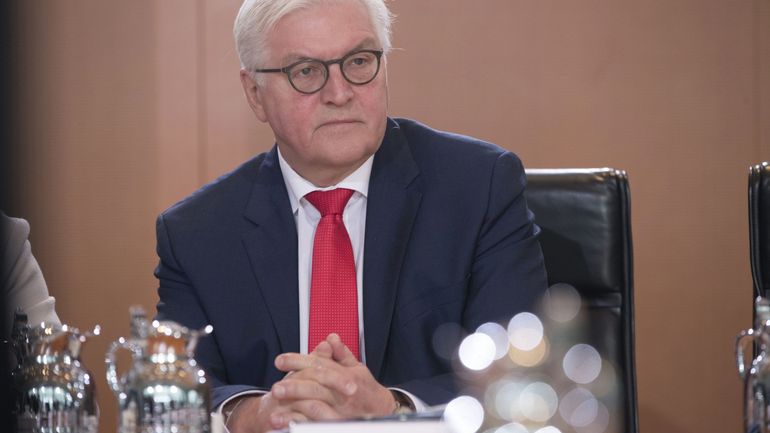German President Frank-Walter Steinmeier had expressed a willingness to travel to Ukraine and show support for the country but was reportedly not welcomed by Zelenskyy and his government. The move is seen as a snub by commentators across several media.
"I was prepared to go but apparently I wasn't wanted in Kyiv and I have accepted this," he told reporters from Warsaw on Tuesday, 12 April.
The visit was orchestrated by Polish President Andrzej Duda who had suggested that Steinmeier join leaders from the Baltic states to go to Kyiv on Wednesday. Yet Kyiv wanted Chancellor Olaf Scholz to visit as he would have been able to send weapons to the country, unlike Steinmeier who has a ceremonial role as President.
The politician who understood Putin
Steinmeier, who previously worked for Chancellors Gerhard Schröder and Angela Merkel, was seen as someone who understood Russian President Vladimir Putin.
However, Steinmeier recently admitted publicly that he was wrong about Putin. "I did not think that Putin would lead his country to economic, political and moral ruin in the name of his imperial madness. Like others, I was mistaken," he said on channel ARD. "My support for Nord Stream 2 was clearly a mistake," he added.
Related News
- 30,000 Ukrainians returning home every day, relief agencies say
- Russian flagship badly damaged with crew evacuated
- War in Ukraine: Biden accuses Putin of 'genocide'
Ukrainian President Volodymyr Zelensky backtracked on the move, saying on Wednesday that there never had been a request from Steinmeier's office.
Germany's uneasy relationship with Russia
German Chancellor Olaf Scholz has so far been reluctant to supply Ukraine with weapons despite Zelenskyy's pleas, and his hesitation is creating division within the German government. The Greens are the biggest coalition party in Scholz's government and see things differently.
"[Ukraine] needs more military equipment, especially heavy weapons," said Germany's Foreign Minister Annalena Baerbock from Luxembourg on Monday.
Since the end of World War II, Germany has taken a pacifist stance in its foreign policy. Yet Russia's invasion of Ukraine has led to a historic reversal of its defence and foreign policy, announcing it would beef up its defence spending with €1 billion in February.
Germany is deeply dependent on Russian energy, as half of its gas and a third of its oil supplies come from there. Reuters wrote that the country rejected the EU's embargo on Russian oil on Wednesday, according to a German government spokesperson.

